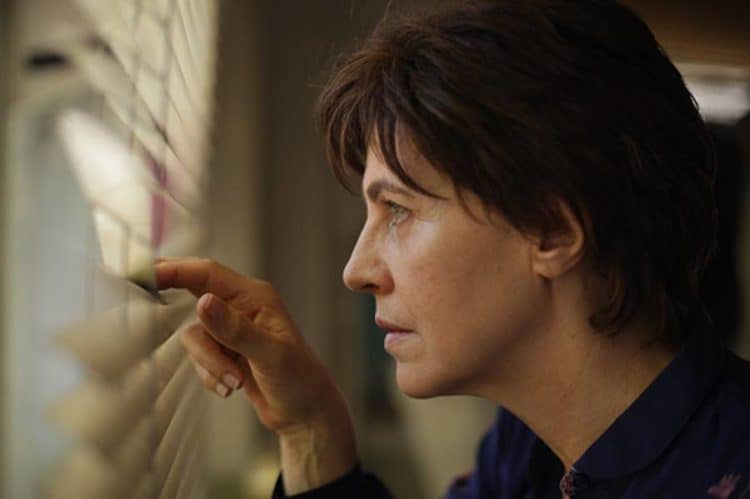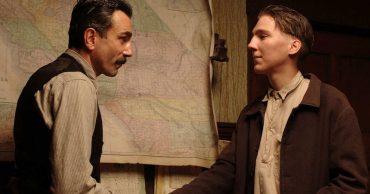
The Balkan region, also known as Southeast Europe, is one of the most diverse in the world, taking in various different ethnicities, cultures and regions. Counting over ten countries and spanning from Slovenia to Western Romania, one can find a huge amount of interesting cinema that is worthy of your time. To celebrate the region, we have created a list of five films that we believe are essential viewing.
We have decided on a relatively broad definition of the Balkan region here, which allows us to celebrate the full brilliance on offer. Spanning from the films of former Yugoslavia to 90s Greece to modern-day Serbia, these films are filled with energy, satire, heartbreak and the changing of nations. Read on to see which films we picked. Disagree with what we choose? Feel free to sound off in the comments below!
The Wounds
Dedicated in the opening sequence to the “generations born after Tito”, The Wounds is a raucous satire of Serbian life following the break up of Yugoslavia. A remarkable anti-state movie made with state money during the unstable period of the 90s, The Wounds, inspired in part by Martin Scorsese’s Goodfellas, could only have been made during that time.
It tells the story of Pinki, born the day Yugoslav president, Josip Broz Tito – who was generally regarded as a uniting leader – died. He is best friends with the Croatian Serb Å vaba: inspired by the Belgrade gangsters who were made media stars by Serbian television, they enter the world of crime together at the young age of 14. A devastating critique of the deadly Slobodan MiloÅ¡ević regime, The Wounds showed how some of the most violent people in the country can also be victims. It was a controversial shot in the arm for Serbian authorities, who refused to run adverts for it on state TV. Nonetheless it was a massive success and was even shown in bordering Croatia, although inexplicably with subtitles despite the fact that both languages are practically the same.
W.R. Mysteries of the Organism
Dušan Makavejev was one of the key figures in the development of Balkan cinema, one of the leading figures in the Black Wave movement of the 60s and 70s. His most famous film, which established him on the world stage, was W.R. Mysteries of the Organism. A strange satire that bizarrely links communism with sexuality, it is a unique mix of fiction and documentary that still startles to this day.
A true anti-authoritarian work, Makavejev’s film purports to be a documentary about Austrian analyst Wilhelm Reich, who believed that the orgasm could be a cure for disease. This is intercut with a love affair between a Yugoslavian woman and a Russian figure skater, creating something truly bizarre and anarchic in the process. Premiering at the Cannes Film Festival, it baffled many critics, although the likes of Roger Ebert quickly saw its unique character. The film was banned in Yugoslavia for sixteen years, with Makavejev sent into exile, only to return after the end of the regime. It would later prove a key inspiration on documentary and fiction hybrid forms.
Black Cat, White Cat
One cannot talk about Balkan cinema without mentioning at least one film by its most celebrated director, Emir Kusturica, the man behind films such as Underground, My Father Was Away on Business and Time of The Gypsies. For this list we have picked Black Cat, White Cat, a romantic black comedy that best showcases his penchant for chaos and magic realism.
The story of Balkans is often the story of borders, as it is a region in Europe, unlike the EU, which doesn’t allow free and easy travel. In Kusturica’s film, action takes place upon the Danube River, with its Romani gypsy characters living on the Serbian border with Bulgaria. The hero is Matko Destanov, a smuggler who lives with his son in a self-built shack. When he has a new plan to get rich, he comes into contact with the gangster Grga Pitić, and many hijinks ensue, including a wedding scene that equals the very best of Federico Fellini.
Ulysses’ Gaze
Greek filmmaker Theodoros Angelopolous made a variety of films that intersected Greek’s history with the wider region. Of particular note are the films he made in the 90s, entitled “The Trilogy of Borders” – with both The Suspending Step of the Stork and Eternity and a Day concerned with the border between Albania and Greece.
Ulysses’ Gaze, which was sandwiched in between these two films, might be the most interesting of the lot, starring Harvey Keitel as a Greek film director who returns to the region to participate in a screening of one of his films before starting an odyssey across Albania, North Macedonia, Romania, Serbia and Bosnia, all in search of three undeveloped films by the Manaki Brothers, the first films ever made in the region.
It is told in Angelolopolous’ unique style, filled with long, enigmatic tracking shots and a quiet contemplative mood. The result is a fascinating exploration of myth and identity, surveying the ruin of the Balkans during the 90s in search of a new beginning.
Stitches
Miroslav Terzić’s Stitches is a slow and measured drama about a horrible reality in modern-day Serbia. Snezana Bogdanovic plays Ana, a quietly determined woman who still doesn’t know where her son was buried after she had given birth. When she realises that her son is not actually dead but was taken from her and given to another family, she sets off on an epic quest, fighting tirelessly against the labyrinthine difficulties of Belgrade bureaucracy.
Based on a real phenomenon in Serbia whereby over 500 families are still looking for their children, and not a single case has been closed, TerzÃc avoids didacticism through the use of simple repetition as well as the great humanity of Bogdanovic’s performance, which remains composed despite the endless difficulties she faces. As I wrote in my initial review – when it played last year at Berlinale – it is almost the perfect film.
 Follow Us
Follow Us





